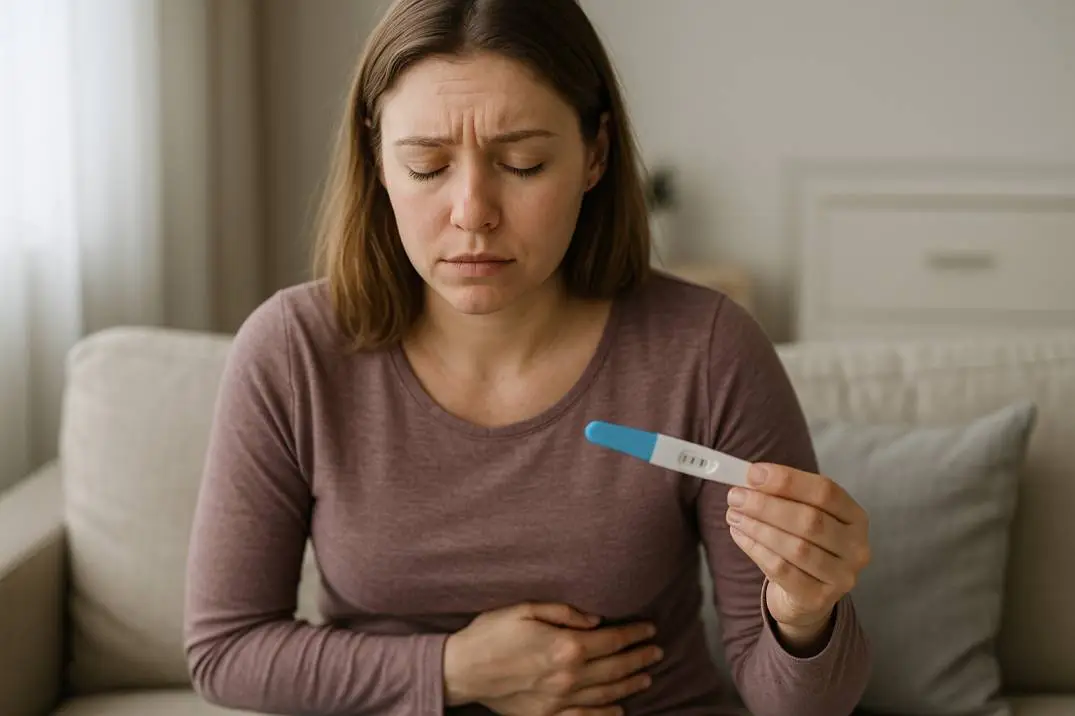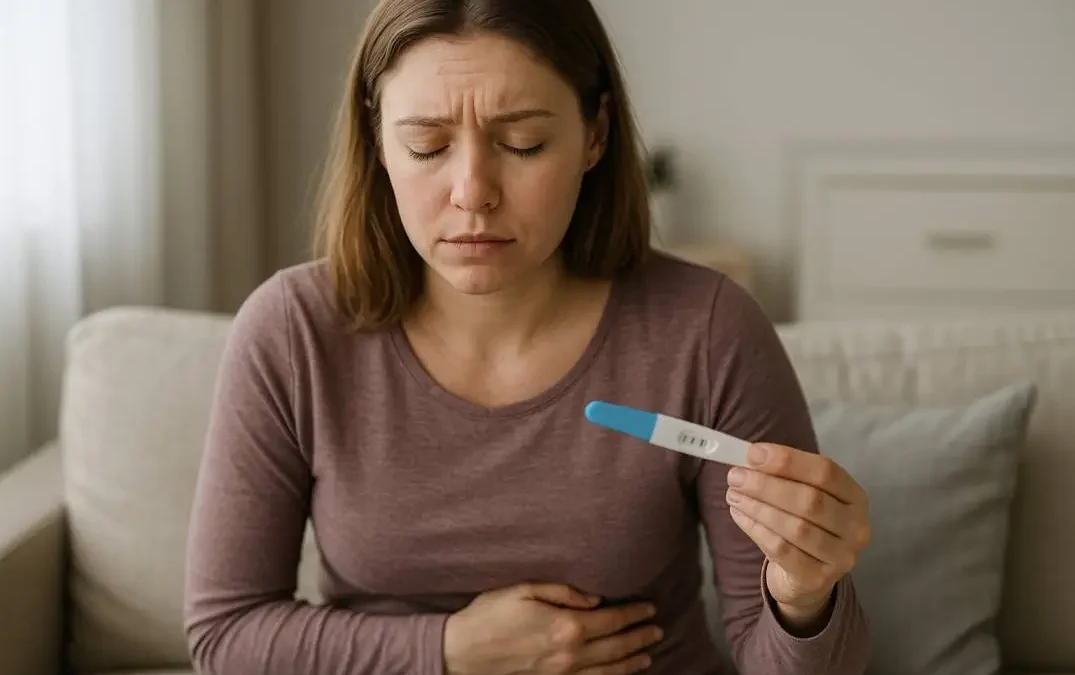IUI Success Symptoms: A Day-by-Day Guide to the Two-Week Wait

The two-week wait after an Intrauterine Insemination (IUI) procedure can feel like the longest two weeks of your life.
Every small twinge, cramp, or change in your body can lead to a whirlwind of questions and emotions.
Are these signs of success? Or is it just my imagination? This period is filled with hope, anxiety, and a constant search for answers.
We understand this emotional rollercoaster. You’re looking for clarity and reassurance during a time of uncertainty.
This guide is here to walk you through the journey, providing a detailed, day-by-day look at potential symptoms you might experience after an IUI.
We will explore what these signs could mean, separate IUI after-effects from early pregnancy symptoms, and help you navigate this waiting period with more calm and confidence.
What is IUI and How Does It Work?
Before we dive into the symptoms, let’s quickly understand the IUI process. Intrauterine Insemination is a fertility treatment where specially washed and concentrated sperm is placed directly into your uterus, close to the fallopian tubes, around the time of ovulation.
The main goal of IUI is to increase the number of sperm that reach the egg, thereby increasing the chance of fertilisation. The procedure itself is quick and relatively painless, often taking just a few minutes.
The real challenge for many couples begins right after: the dreaded two-week wait until a pregnancy test can give a reliable result.
The Two-Week Wait: What’s Happening Inside Your Body?
It’s crucial to remember that many early “pregnancy” symptoms are actually caused by the progesterone hormone, which is often prescribed after an IUI to support the uterine lining.
Progesterone can mimic pregnancy symptoms, making it difficult to distinguish between the medication’s side effects and a true sign of success.
Here’s a possible timeline of what happens after a successful IUI:
- Day 0 (IUI Procedure): Sperm is inseminated. It travels towards the fallopian tube to meet the egg.
- Days 1-3: Fertilisation may occur as the sperm meets the egg. The fertilised egg (zygote) starts dividing and becomes an embryo.
- Days 4-6: The embryo travels down the fallopian tube towards the uterus.
- Days 6-12: The embryo attempts to implant into the uterine lining. This is a critical step for a successful pregnancy. If implantation occurs, the body starts producing hCG (human chorionic gonadotropin), the “pregnancy hormone”.
IUI Success Symptoms Day by Day: What You Might Feel
Let’s break down the potential symptoms you might notice day by day after your IUI procedure. Remember, many women experience no symptoms at all and still have a successful pregnancy. This is just a general guide.
⇒Days 1-3 Post-IUI
Immediately after the procedure, it’s common to experience some mild discomfort. These are generally not signs of pregnancy but rather the body’s reaction to the IUI itself.
- Mild Cramping: You might feel light, period-like cramps. This is often due to the catheter insertion during the IUI.
- Light Spotting: A small amount of pinkish or brownish discharge can occur. This is usually caused by slight irritation to the cervix.
- Bloating: Hormonal medications used to stimulate ovulation can cause bloating and a feeling of fullness.
⇒Days 4-7 Post-IUI
During this period, the embryo is travelling to the uterus. It’s still too early for true pregnancy symptoms, as implantation has likely not yet occurred. Any symptoms are probably still related to progesterone.
- Continued Bloating and Cramping: These may persist from the hormonal support.
- Breast Tenderness: Is sore breasts a sign of IUI success? It can be, but at this early stage, it’s more likely a side effect of progesterone. The hormone increases blood flow to the breasts, making them feel tender and swollen.
- Fatigue: Feeling unusually tired is a common complaint. Again, high progesterone levels can make you feel sleepy and drained.
⇒Days 7-12 Post-IUI: The Implantation Window
This is the most crucial time. If the embryo successfully implants into your uterine wall, you might start noticing some of the earliest signs of pregnancy.
- Implantation Bleeding: Does implantation bleeding happen after IUI? Yes, it can. About 25% of women experience it. It’s typically very light pink or brown spotting, lasting from a few hours to a couple of days. It occurs when the embryo burrows into the blood-rich lining of the uterus.
- Implantation Cramping: You might feel mild, pulling, or pricking sensations in your lower abdomen. This is different from menstrual cramps and is often localised.
- Changes in Basal Body Temperature (BBT): If you are tracking your BBT, you might notice a second temperature rise after an initial dip around the time of implantation.
- Nausea: Early waves of morning sickness can begin for some women as hCG levels start to rise.
- Increased Urination: As the pregnancy hormone hCG increases, it can lead to more frequent trips to the bathroom.
Distinguishing IUI Symptoms from Early Pregnancy Signs
This is the million-rupee question. The overlap between progesterone side effects and early pregnancy symptoms is significant. The table below can help you see the similarities.
|
Symptom |
Could be Progesterone Side Effect? |
Could be Early Pregnancy Sign? |
|
Mild Cramping |
Yes |
Yes (Implantation) |
|
Light Spotting |
Yes (from procedure) |
Yes (Implantation) |
|
Bloating |
Yes |
Yes |
|
Breast Tenderness |
Yes |
Yes |
|
Fatigue |
Yes |
Yes |
|
Nausea |
Yes |
Yes |
|
Mood Swings |
Yes |
Yes |
Because of this overlap, symptom-spotting can be a source of stress. The only definitive way to know if your IUI was successful is a pregnancy test.
When to Take a Pregnancy Test After IUI?
It is tempting to test early, but it is best to wait at least 14 days after your IUI procedure.
Here’s why:
- Risk of False Negatives: If you test too early, your hCG levels might not be high enough to be detected, giving you a negative result even if you are pregnant.
- Risk of False Positives: If you had an hCG “trigger shot” (like Ovidrel or Novarel) to induce ovulation, testing too early can pick up the leftover medication in your system. This can result in a false positive, leading to heartbreak. The trigger shot can stay in your system for up to 10-14 days.
Your iui doctor will schedule a blood test (Beta hCG test) around 14 days post-IUI. This is the most accurate method to confirm a pregnancy.
Key Takeaways
- The two-week wait after IUI is an emotionally charged time. Be kind to yourself.
- Many early pregnancy symptoms (cramping, bloating, fatigue) are also side effects of progesterone medication, making it hard to tell them apart.
- Implantation, which happens 6-12 days after fertilisation, may cause light spotting and mild cramping. These are among the most distinct early signs.
- Symptom-spotting can increase anxiety. Many women have successful IUIs with no symptoms at all.
- The only reliable way to confirm pregnancy is to wait at least 14 days post-IUI for a blood test. Avoid testing at home too early to prevent false results.
Frequently Asked Questions (FAQ)
Q: What are the positive signs after IUI day by day?
A: Positive signs can include implantation bleeding or cramping around days 7-12, breast tenderness, fatigue, and nausea. However, these are not definitive, as they can also be caused by hormonal medications. The absence of symptoms does not mean the IUI failed.
Q: Is white discharge a good sign after IUI?
A: An increase in thin, milky white vaginal discharge (leukorrhea) can be an early sign of pregnancy. However, progesterone supplements, often used after IUI, can also cause changes in discharge. So, it’s not a reliable indicator on its own.
Q: How do you feel 5 days after IUI?
A: Five days after IUI, it is generally too early for pregnancy symptoms, as implantation has likely not occurred. Most feelings, like bloating or mild cramps, are usually due to the progesterone medication or the after-effects of the procedure itself.
Q: Can I have no symptoms after IUI and still be pregnant?
A: Absolutely. Many women experience no noticeable symptoms during the two-week wait and go on to have a successful pregnancy. Every body is different, and a lack of symptoms is not a sign of failure.
Q: What should I avoid after an IUI?
A: Your doctor will give you specific instructions, but general advice includes avoiding strenuous exercise, hot tubs or saunas, heavy lifting, and excessive stress. It’s usually fine to continue with normal daily activities.

-
About Author
Dr. Supriya Puranik
Gynaecologist & IVF Specialist
MMC -072514 (1993)
Dr. Supriya Puranik, a renowned gynaecologist and infertility expert, leads the IVF & Gynaecology department at Sahyadri Hospitals Momstory in Shivaji Nagar, Pune. She is committed to helping couples overcome infertility challenges.





